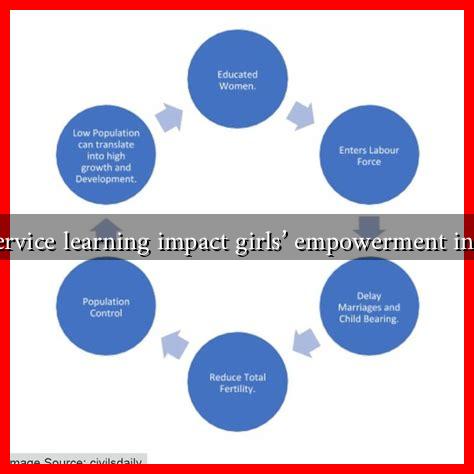-
Table of Contents
- How Can Service Learning Impact Girls’ Empowerment in Education?
- The Importance of Girls’ Empowerment in Education
- Building Leadership Skills Through Service Learning
- Fostering a Sense of Community and Belonging
- Encouraging Critical Thinking and Social Awareness
- Conclusion: The Transformative Power of Service Learning
How Can Service Learning Impact Girls’ Empowerment in Education?
Service learning is an educational approach that combines learning objectives with community service, allowing students to engage in meaningful projects that benefit their communities while developing critical skills. This method has shown significant potential in empowering girls in education, fostering not only academic growth but also personal and social development. In this article, we will explore how service learning can impact girls’ empowerment in education, supported by relevant examples and statistics.
The Importance of Girls’ Empowerment in Education
Empowering girls through education is crucial for achieving gender equality and fostering sustainable development. According to UNESCO, over 130 million girls worldwide are out of school, and those who do attend often face barriers that hinder their educational experience. Empowering girls in education can lead to:
- Increased economic opportunities
- Improved health and well-being
- Greater participation in decision-making processes
- Enhanced community development
Service learning can play a pivotal role in addressing these issues by providing girls with opportunities to engage in their communities, develop leadership skills, and build confidence.
Building Leadership Skills Through Service Learning
One of the most significant impacts of service learning on girls’ empowerment is the development of leadership skills. When girls participate in service projects, they often take on roles that require them to lead, organize, and collaborate with others. This experience can help them:
- Develop communication and interpersonal skills
- Enhance problem-solving abilities
- Build self-esteem and confidence
For instance, a study conducted by the University of California found that girls who participated in service learning programs reported higher levels of self-efficacy and leadership skills compared to their peers who did not engage in such activities. This increased confidence can translate into better academic performance and a greater willingness to pursue leadership roles in their communities.
Fostering a Sense of Community and Belonging
Service learning also helps girls develop a sense of community and belonging, which is essential for their emotional and social well-being. By working on projects that address local issues, girls can connect with their peers and community members, fostering relationships that support their educational journey. This sense of belonging can lead to:
- Increased motivation to attend school
- Improved academic performance
- Lower dropout rates
A case study from the Girls Inc. organization highlights the impact of service learning on girls’ sense of community. In their programs, girls engaged in projects that addressed issues such as poverty and education access. Participants reported feeling more connected to their communities and more motivated to succeed academically.
Encouraging Critical Thinking and Social Awareness
Service learning encourages girls to think critically about social issues and their role in addressing them. By engaging in community service, girls are exposed to real-world challenges, prompting them to analyze problems and develop solutions. This process enhances their critical thinking skills and fosters social awareness, which is vital for becoming informed and active citizens.
Research from the National Youth Leadership Council indicates that service learning can significantly improve students’ critical thinking abilities. Girls who participate in these programs often become more aware of social injustices and are motivated to advocate for change, both in their communities and beyond.
Conclusion: The Transformative Power of Service Learning
Service learning has the potential to transform the educational experience for girls, empowering them to become leaders, critical thinkers, and active community members. By fostering leadership skills, a sense of belonging, and social awareness, service learning can help bridge the gender gap in education and create a more equitable society. As we continue to advocate for girls’ empowerment, integrating service learning into educational curricula can be a powerful strategy for driving change.
In summary, the impact of service learning on girls’ empowerment in education is profound. By providing opportunities for personal growth, community engagement, and critical thinking, service learning not only enhances academic outcomes but also prepares girls to navigate and influence the world around them. For more information on the benefits of service learning, visit National Youth Leadership Council.

